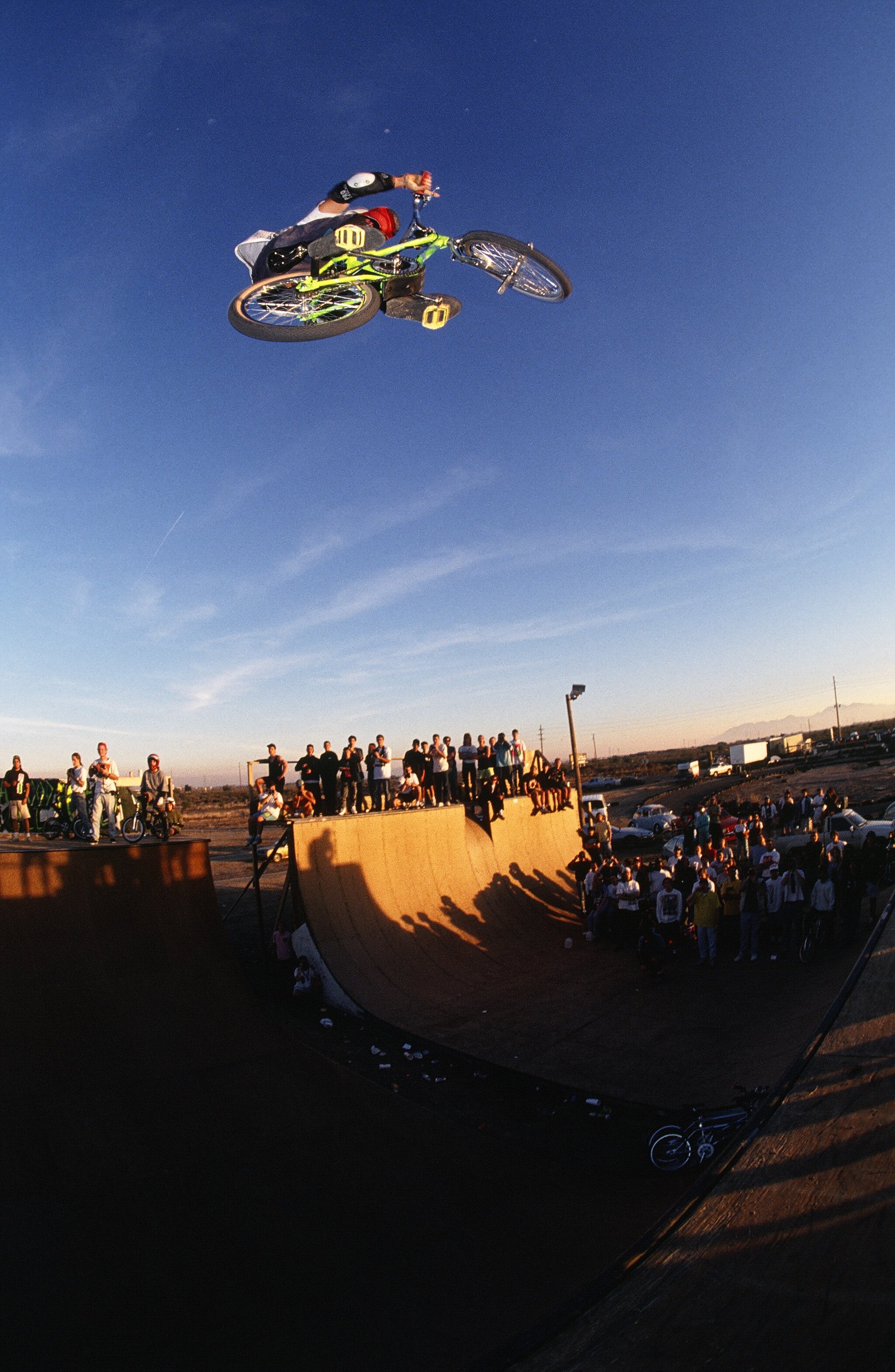1992 - 1993
THE WAY BACK
As the BMX freestyle industry continued to adapt to the hardships of a lifeless market, many were left to contemplate the plight of the sport. As a result, the early ’90s landscape differed greatly from the highly marketable formula that had brought the sport to its zenith in the mid-1980s, when the industry had spawned and harvested a multi-million-dollar global market. The riding scene of the late ’80s had plowed headlong through a period of unrelenting innovation at the hands of professional riders who were obsessed with pushing the sport’s boundaries beyond known limits. In addition, this approach enabled the core community to exert unique influence on the sport’s image. The same community of riders that competed at contests in the early 1980s, wearing motocross uniforms, and putting an emphasis on “showmanship” during their “practiced and polished” routines were now adults. They reinvented the culture of freestyle in the late 1980s and early 90’s and took ownership of its future direction.
One of Haro’s major strengths was its connection to the riding community and its high profile freestyle team. Ron Wilkerson, Brian Blyther, Mat Hoffman. With a stripped back team and less interaction with the market, Haro’s focus shifted to BMX racing and its Group 1 Range. The freestyle hardware focused on the Master - for specialist flatland riders; The Sport for Vert, and the Shredder as the entry level model. The “Big Tube” era ushered in the 1993 Haro Master equipped with reinforced dropouts, Haro Fusion components, and a 74 degree head tube angle that better suited flatland riding.
The challenges at Haro HQ in Carlsbad were not dissimilar, but a succession of ownership changes in the late 1980s had added to the company’s burden of survival. Its management team of Bob Haro, Jim Ford, Brad Lusky, and Dean Bradley was now operating from an unfamiliar and frustrating position, largely driven by the surprise 1988 acquisition and merger of Haro’s parent company West Coast Cycle, with a holding company named Derby Cycle International, who had recently acquired the Raleigh Worldwide brand from Seattle based Huffy.





